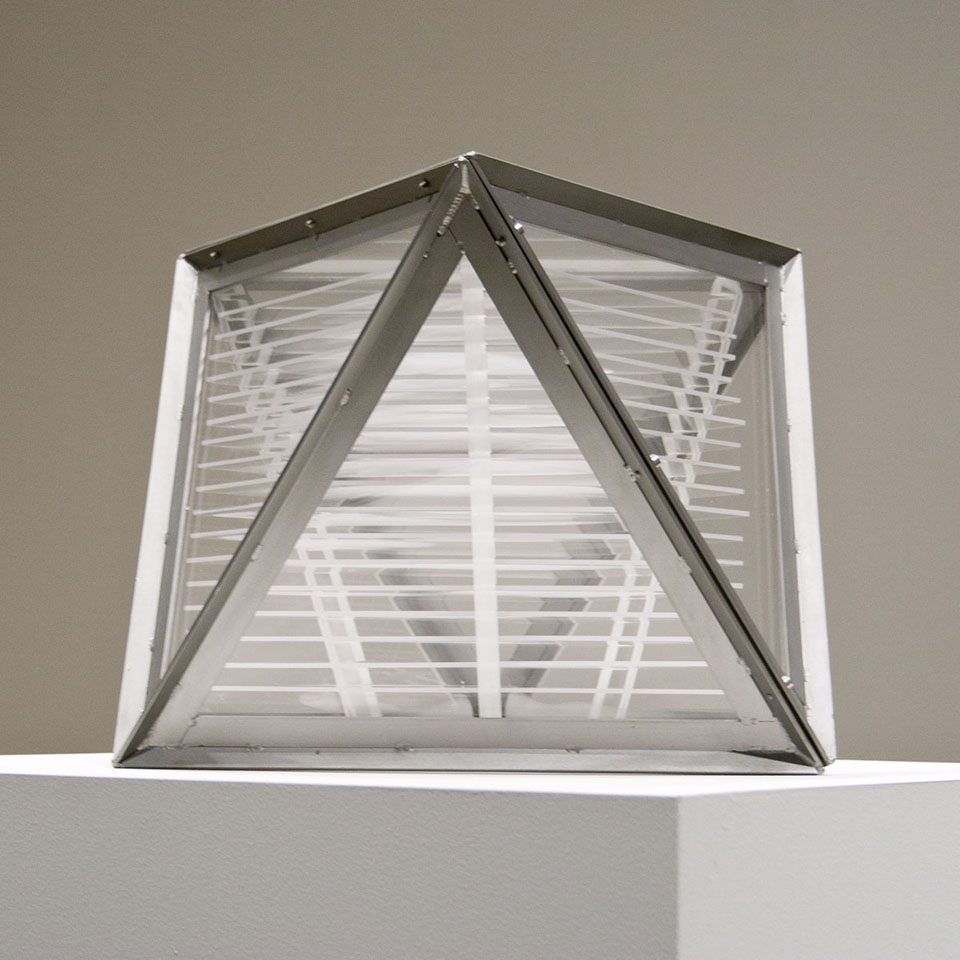
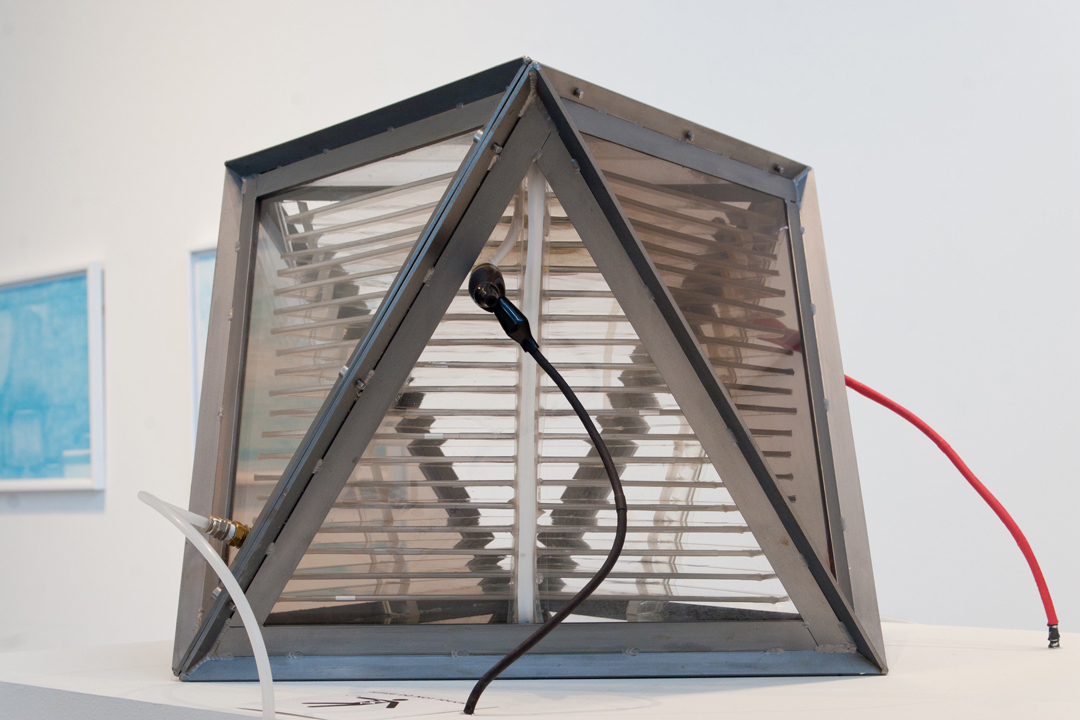
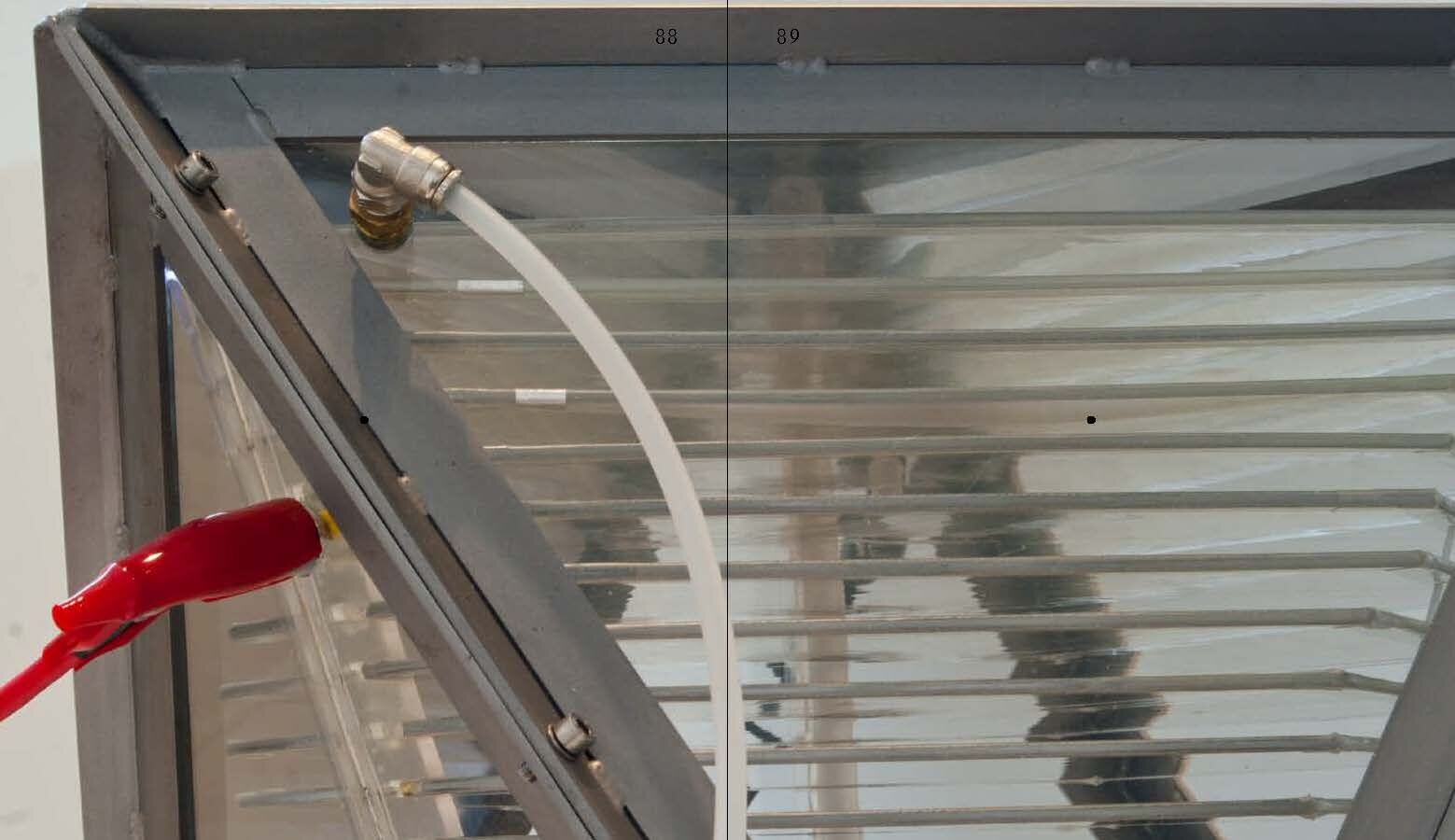
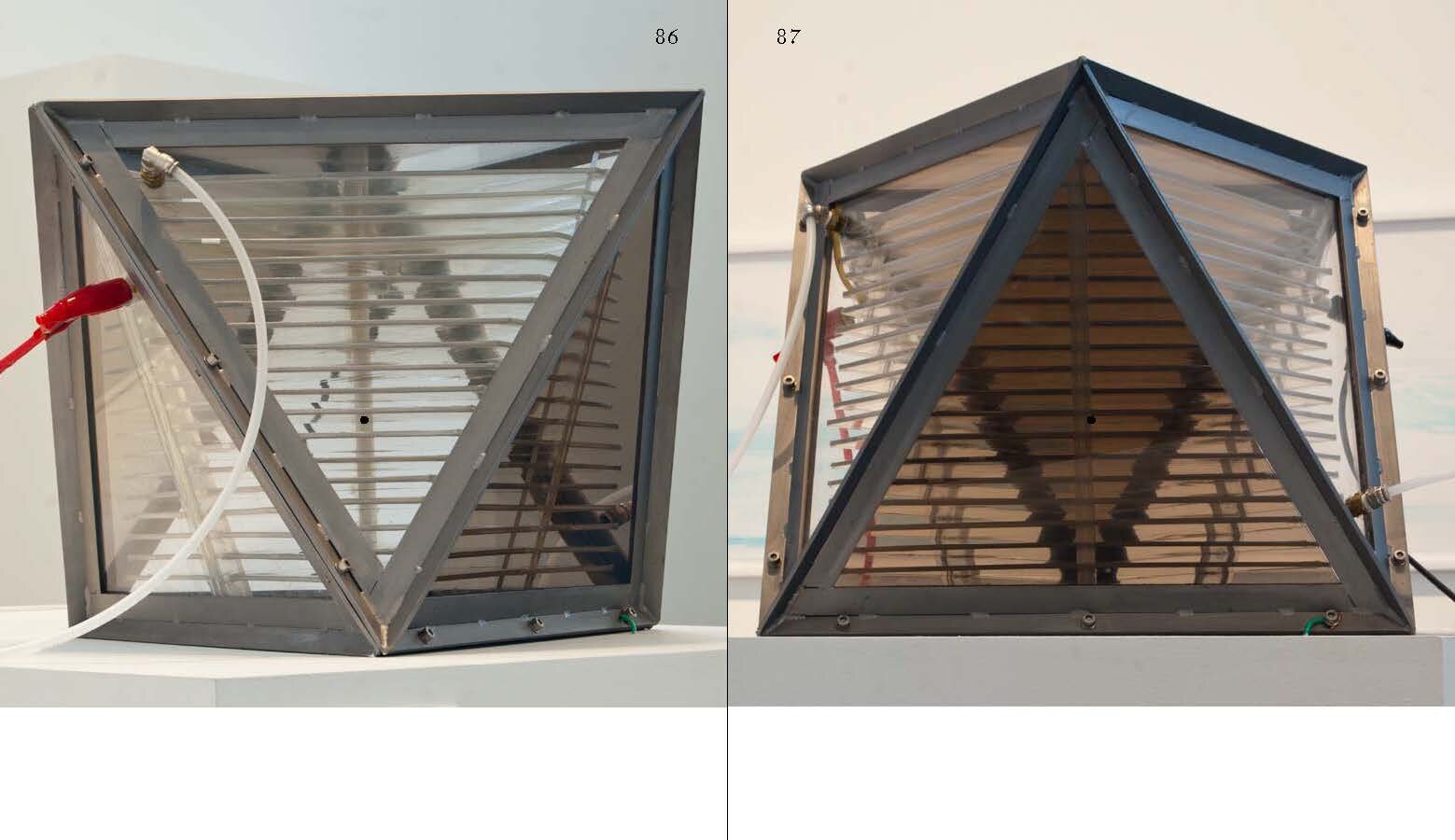
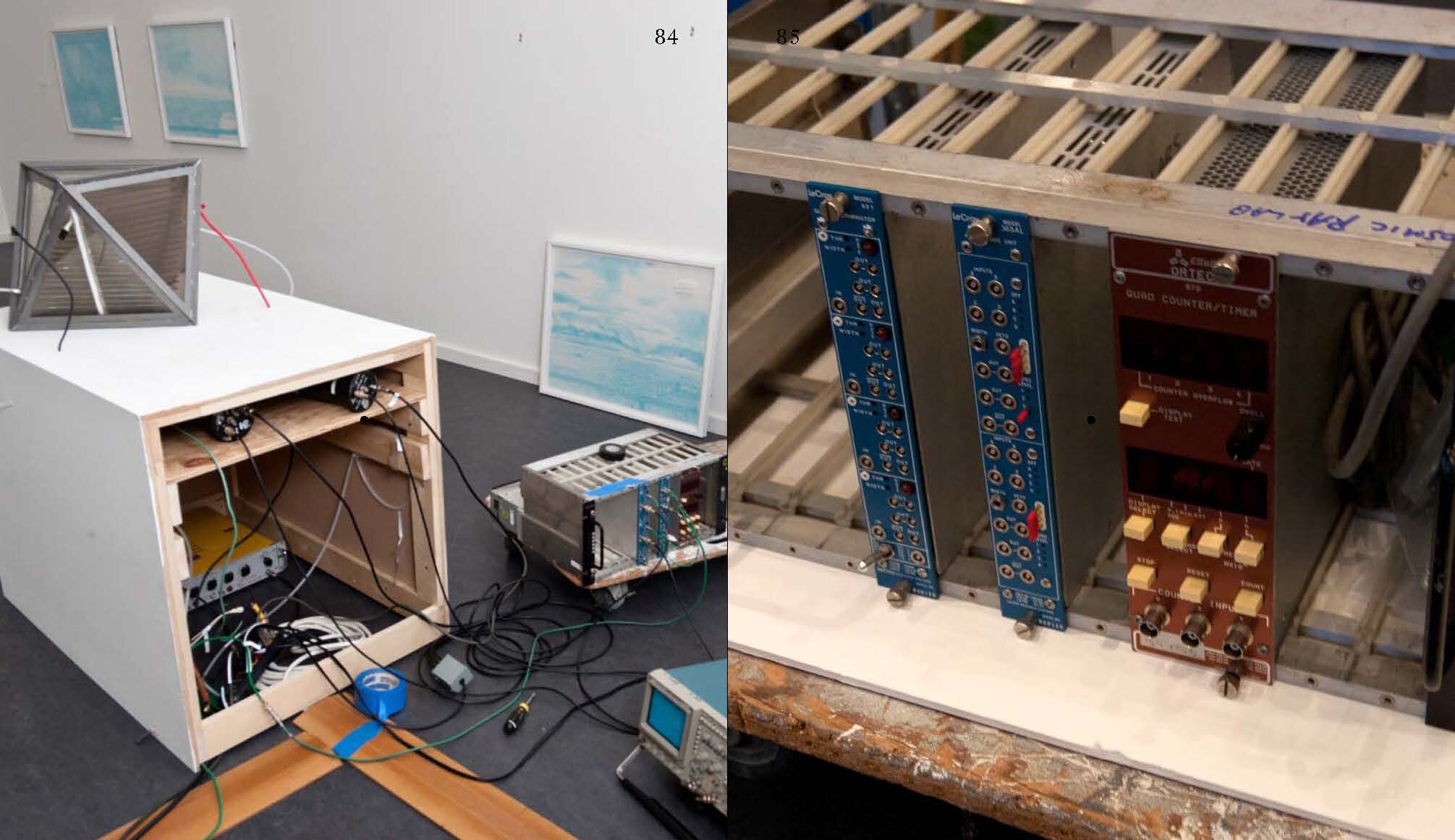
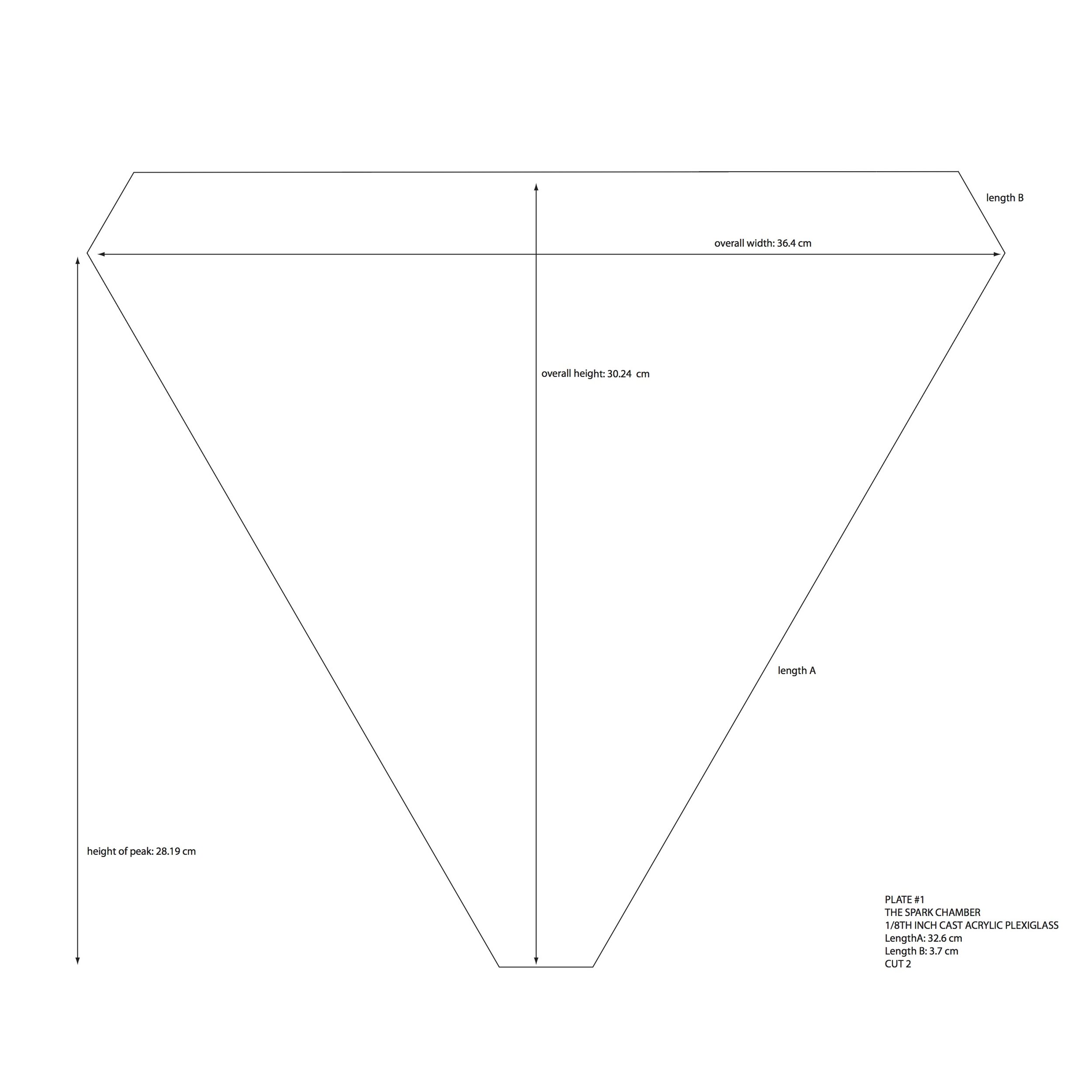
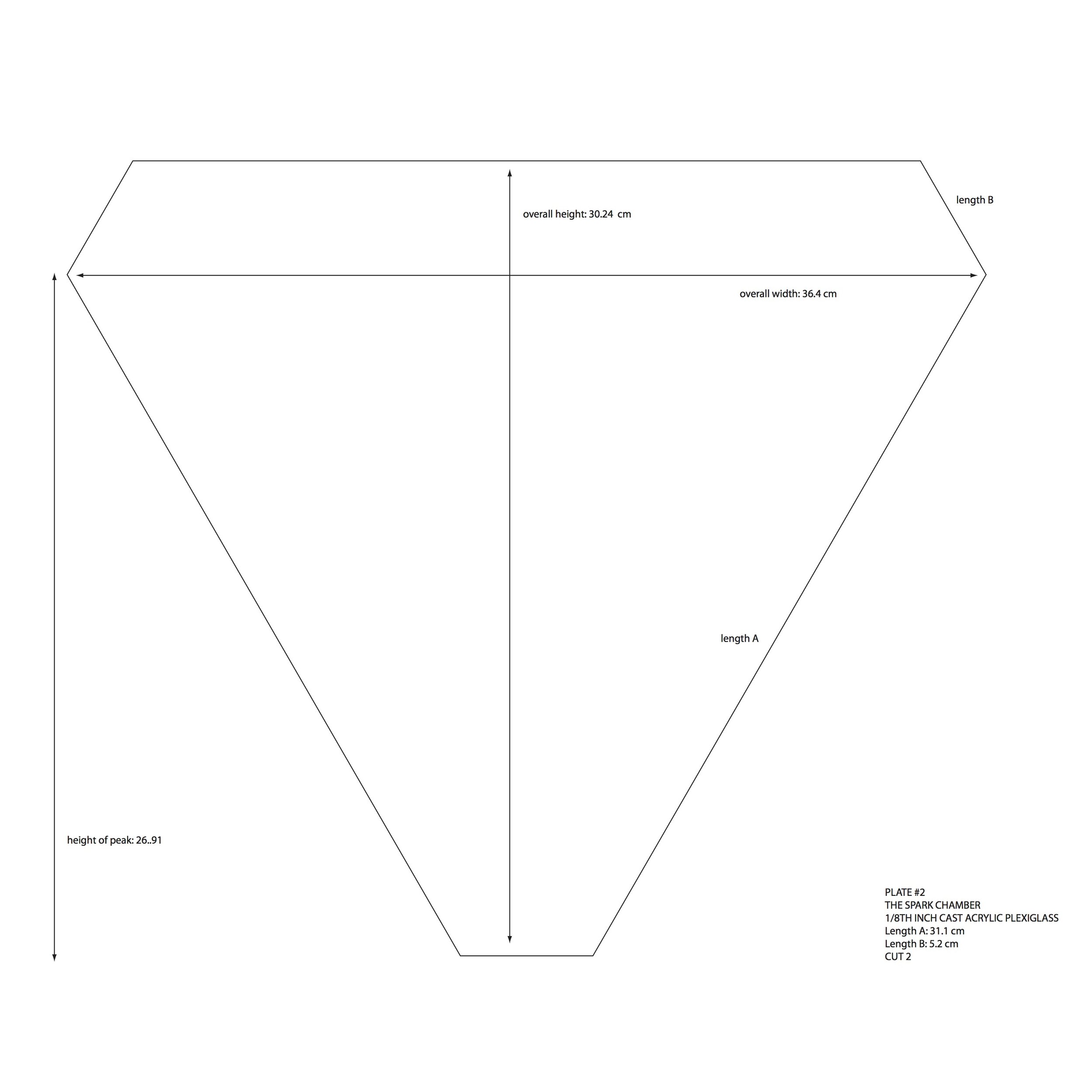
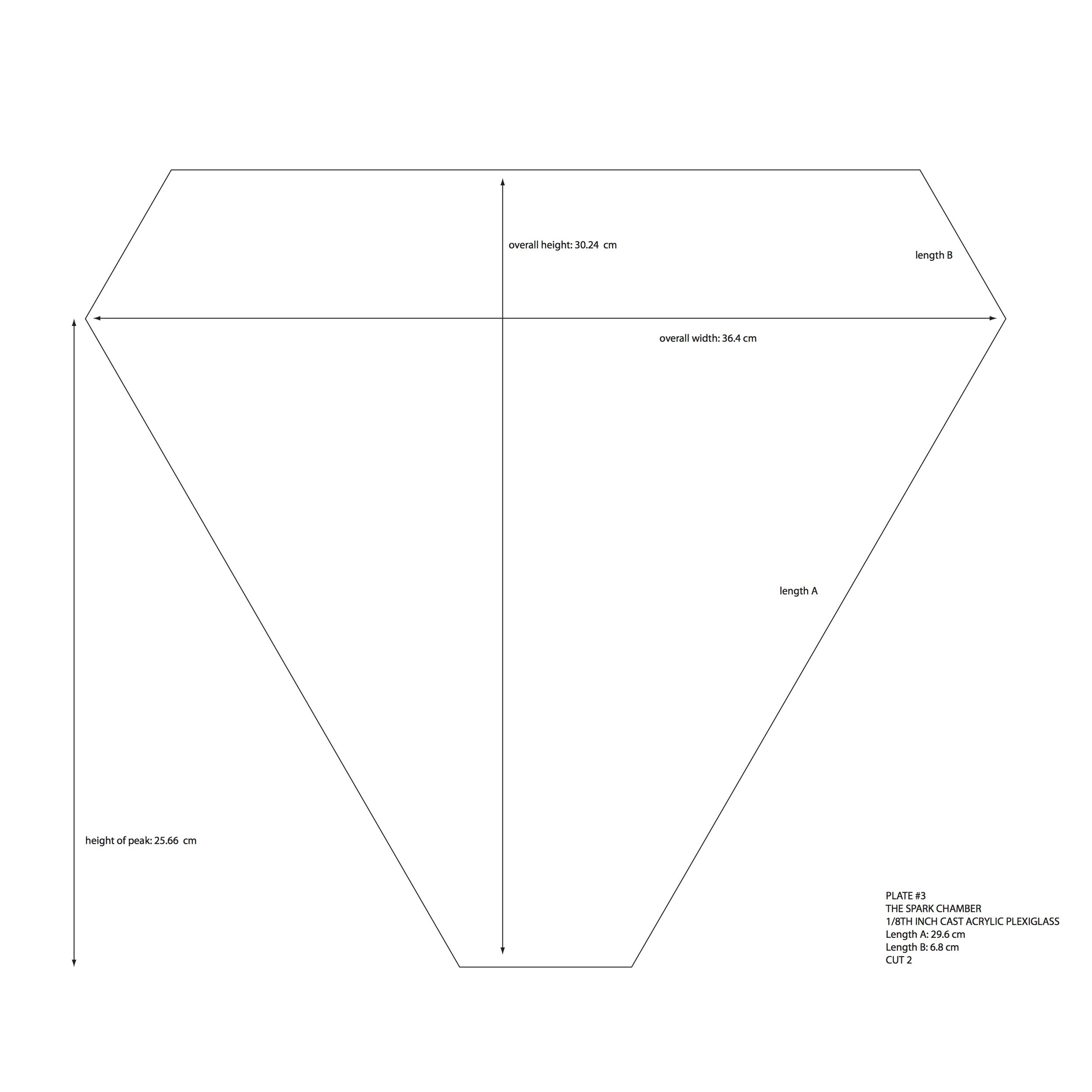
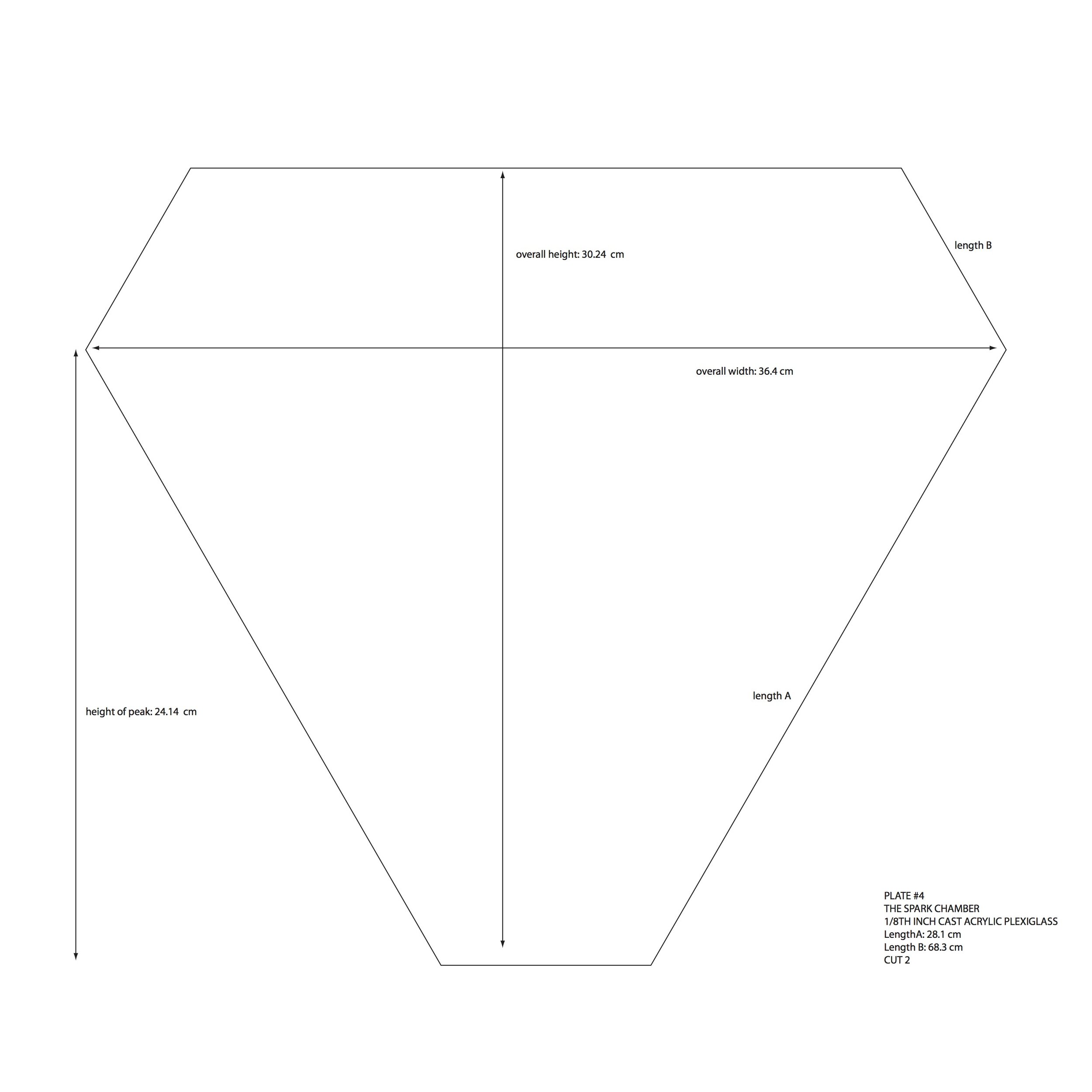
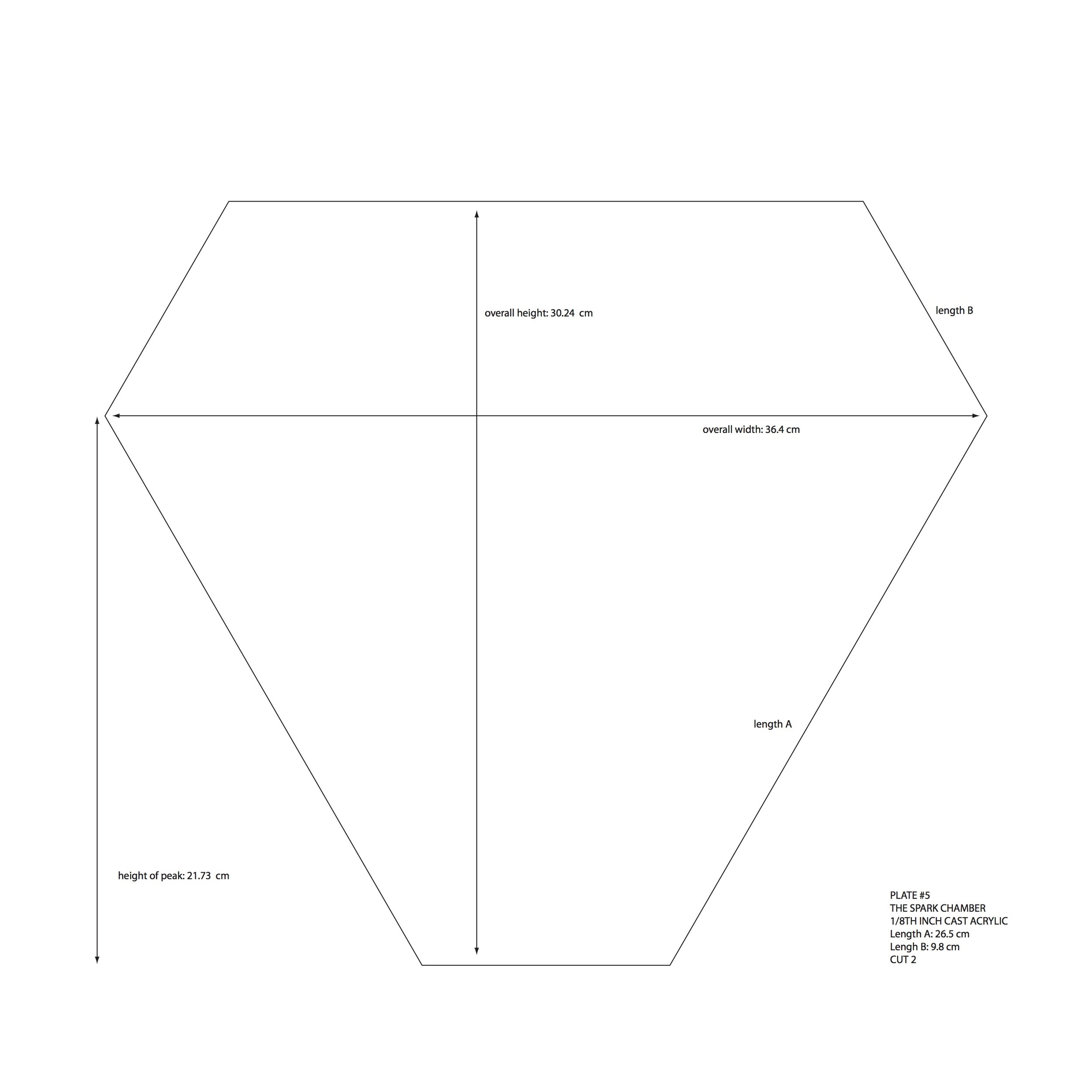
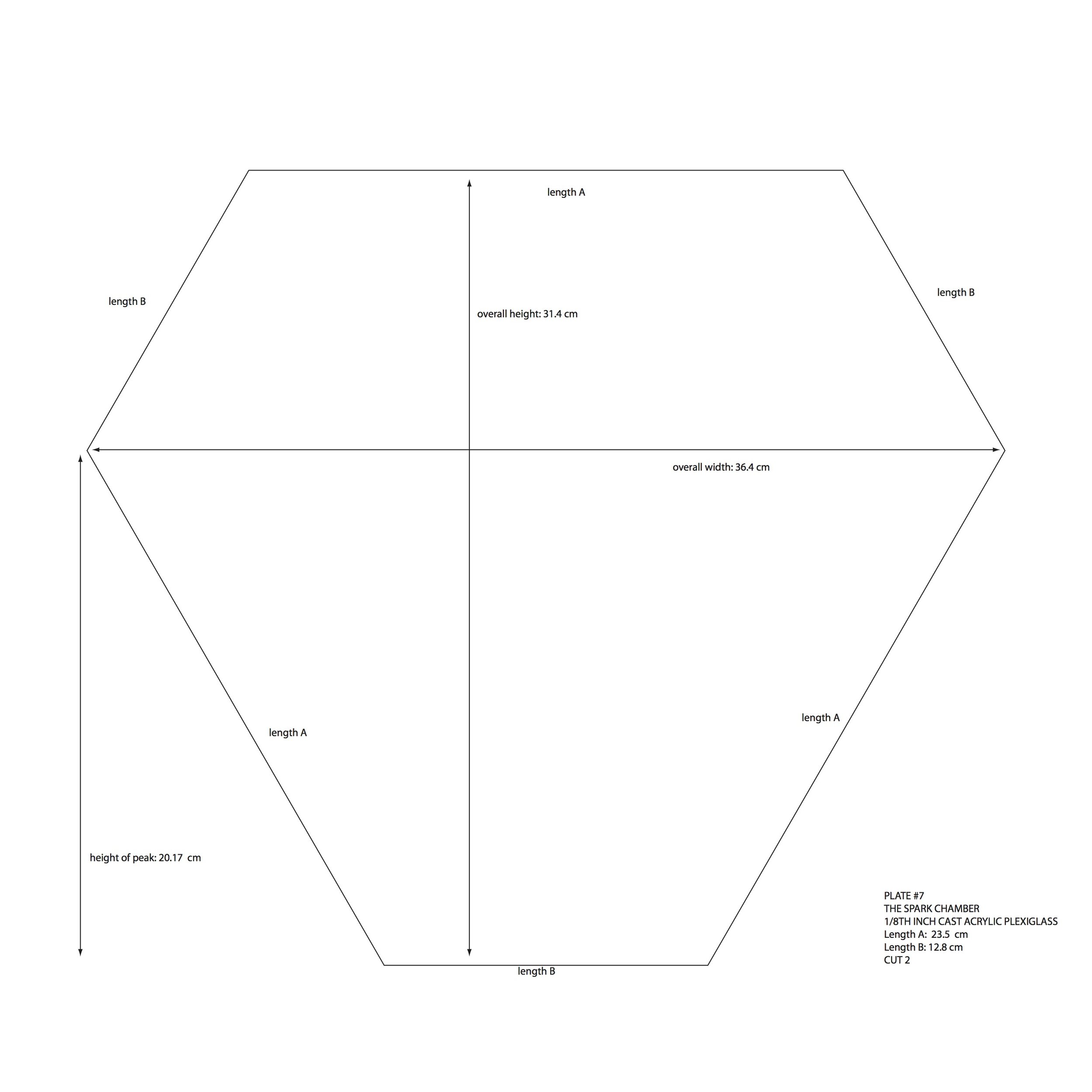
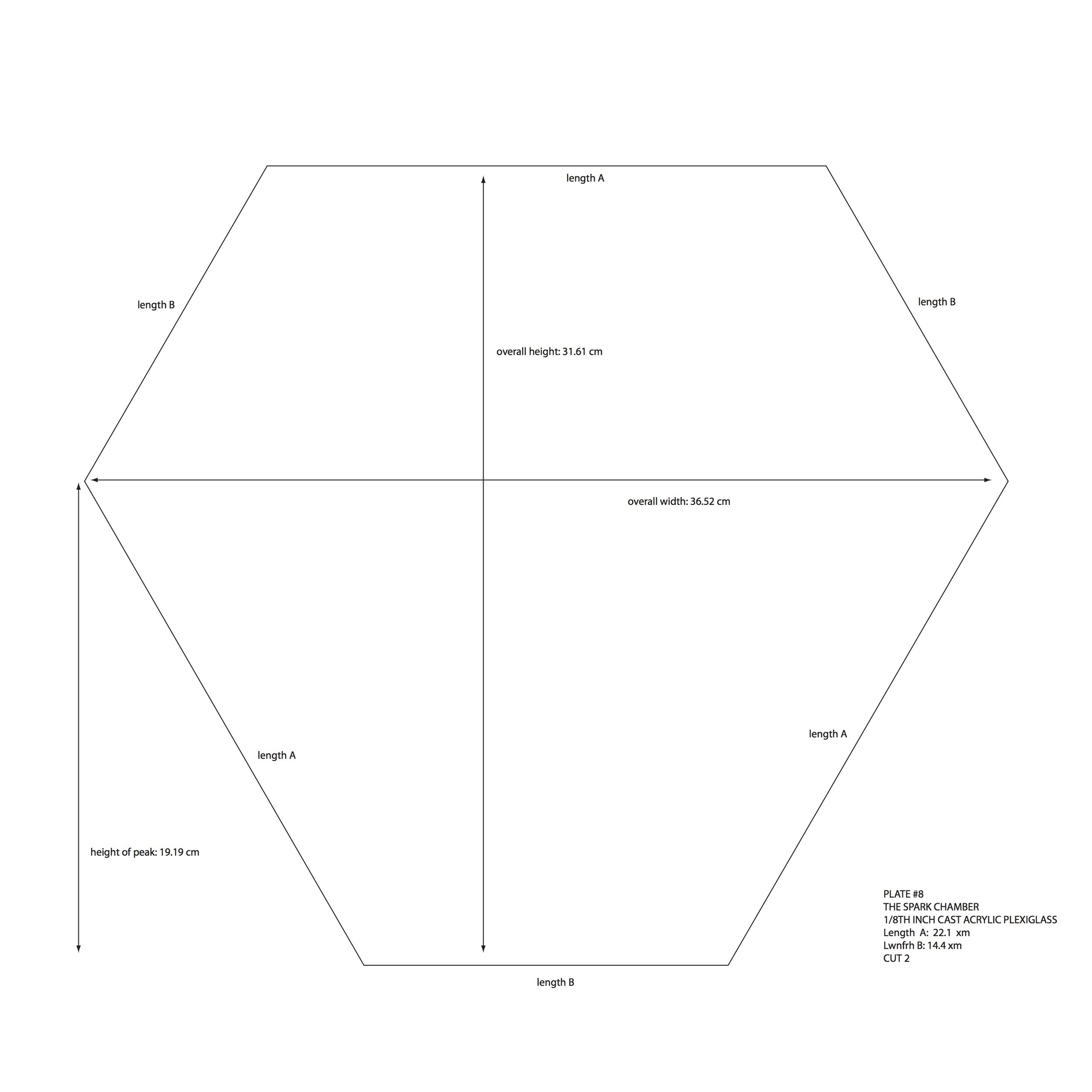
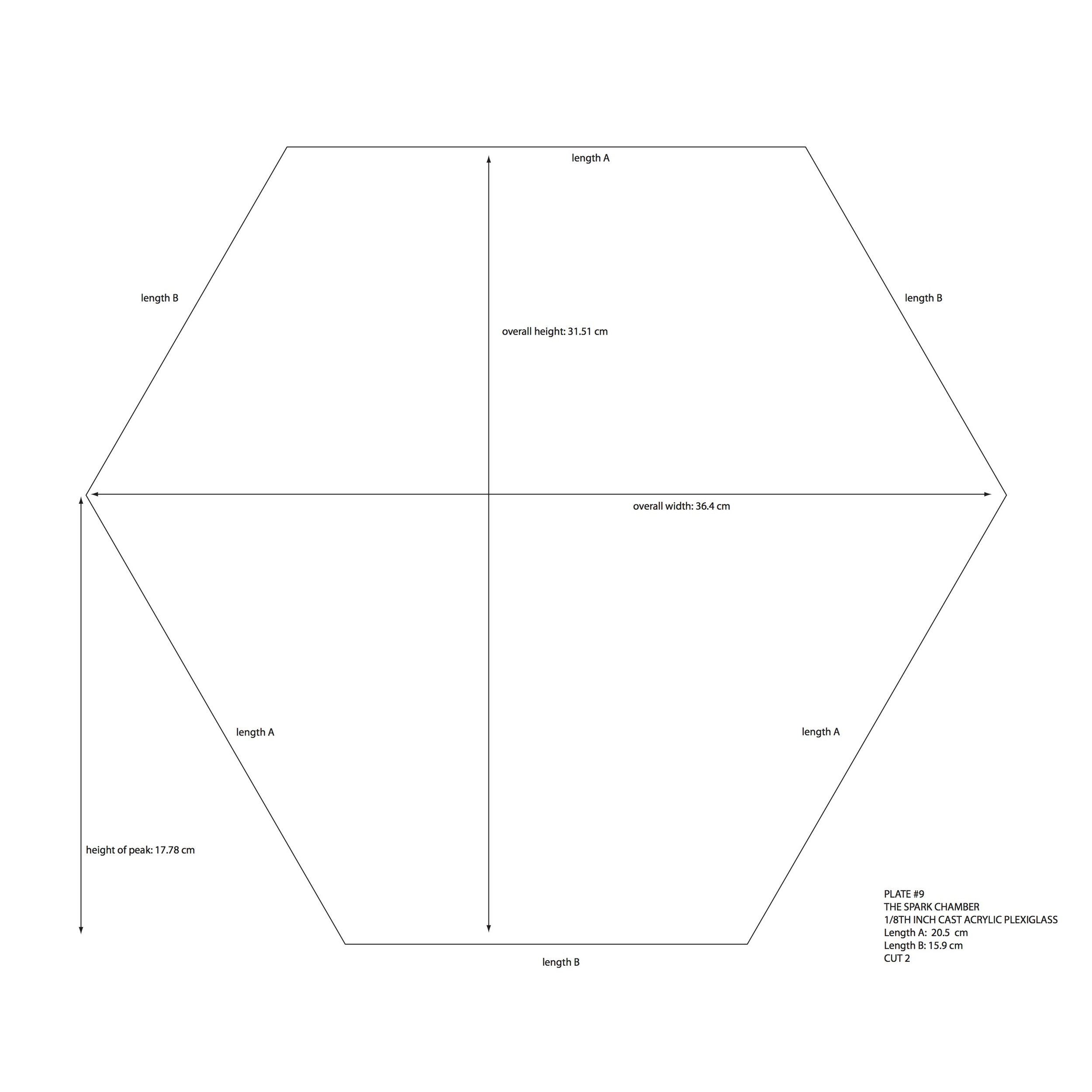
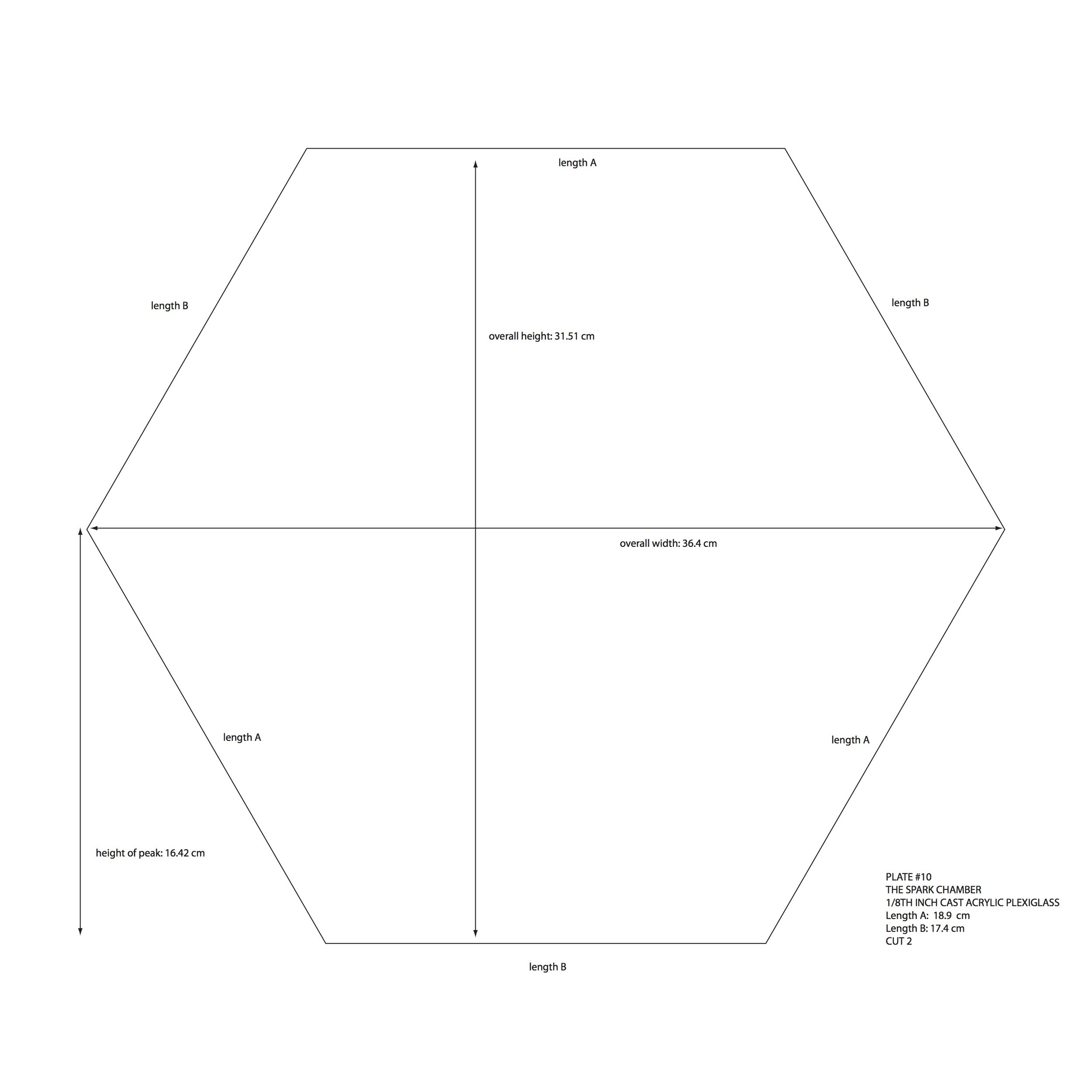

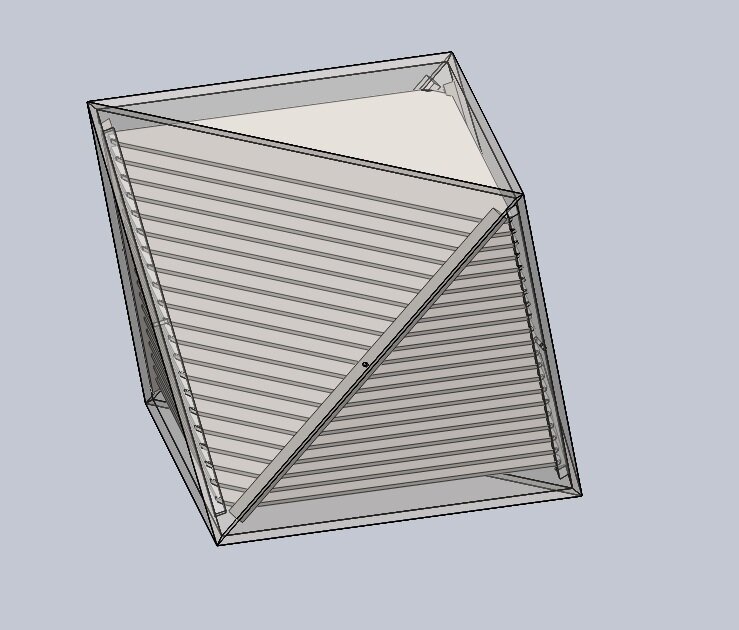
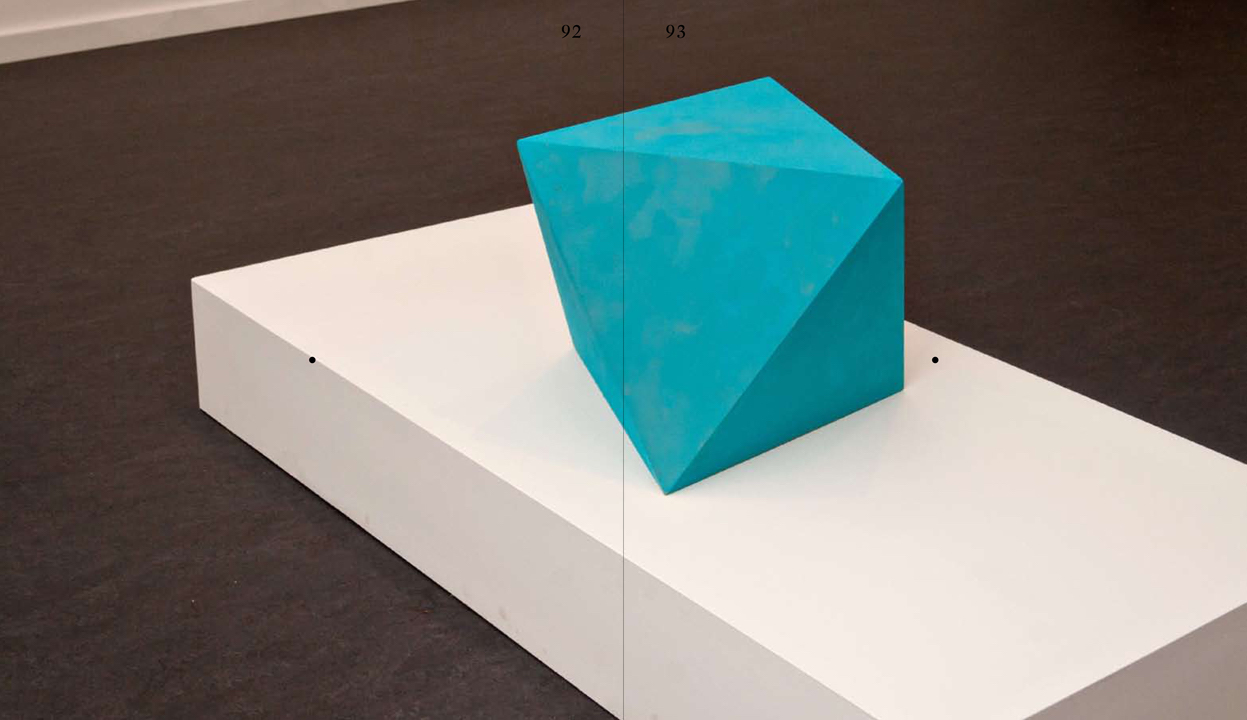

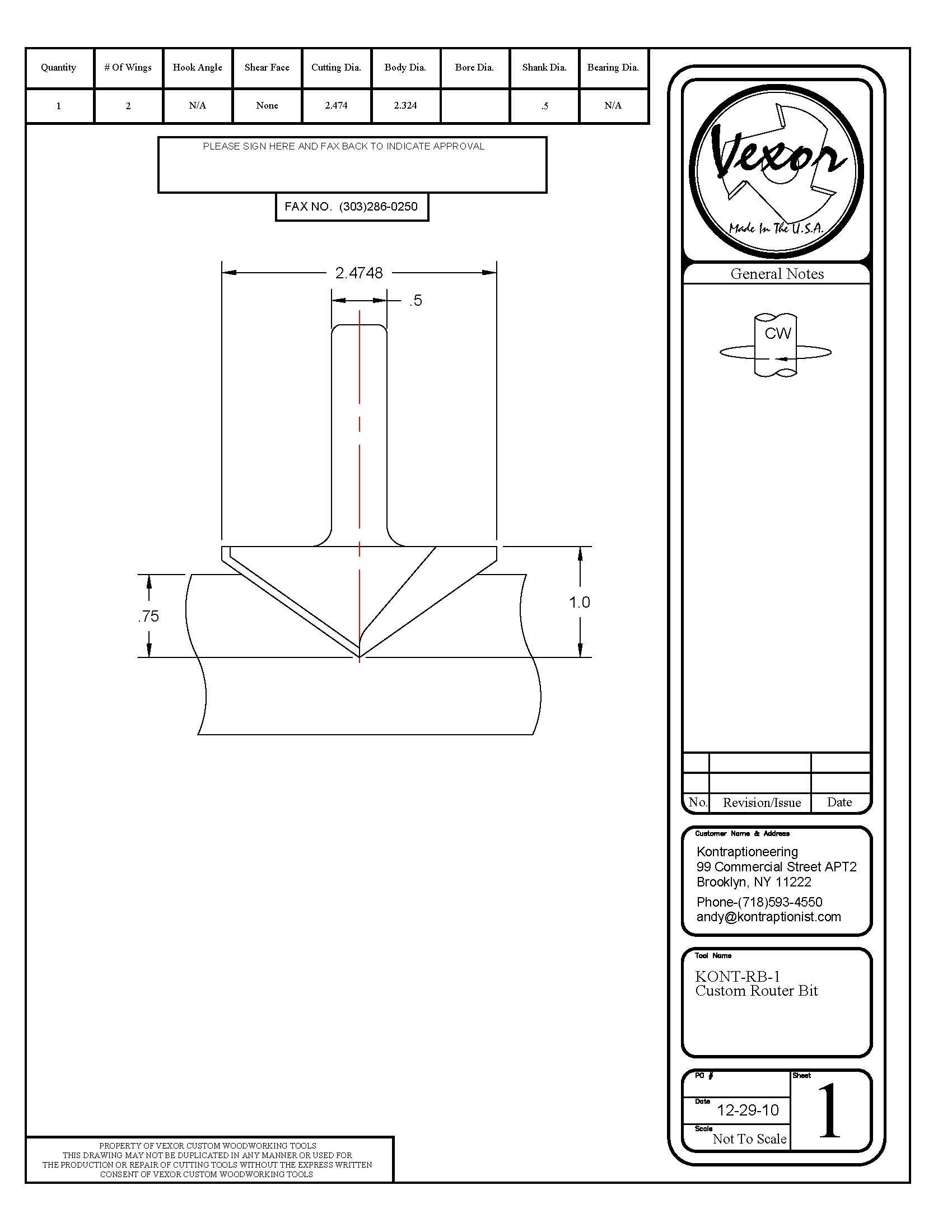

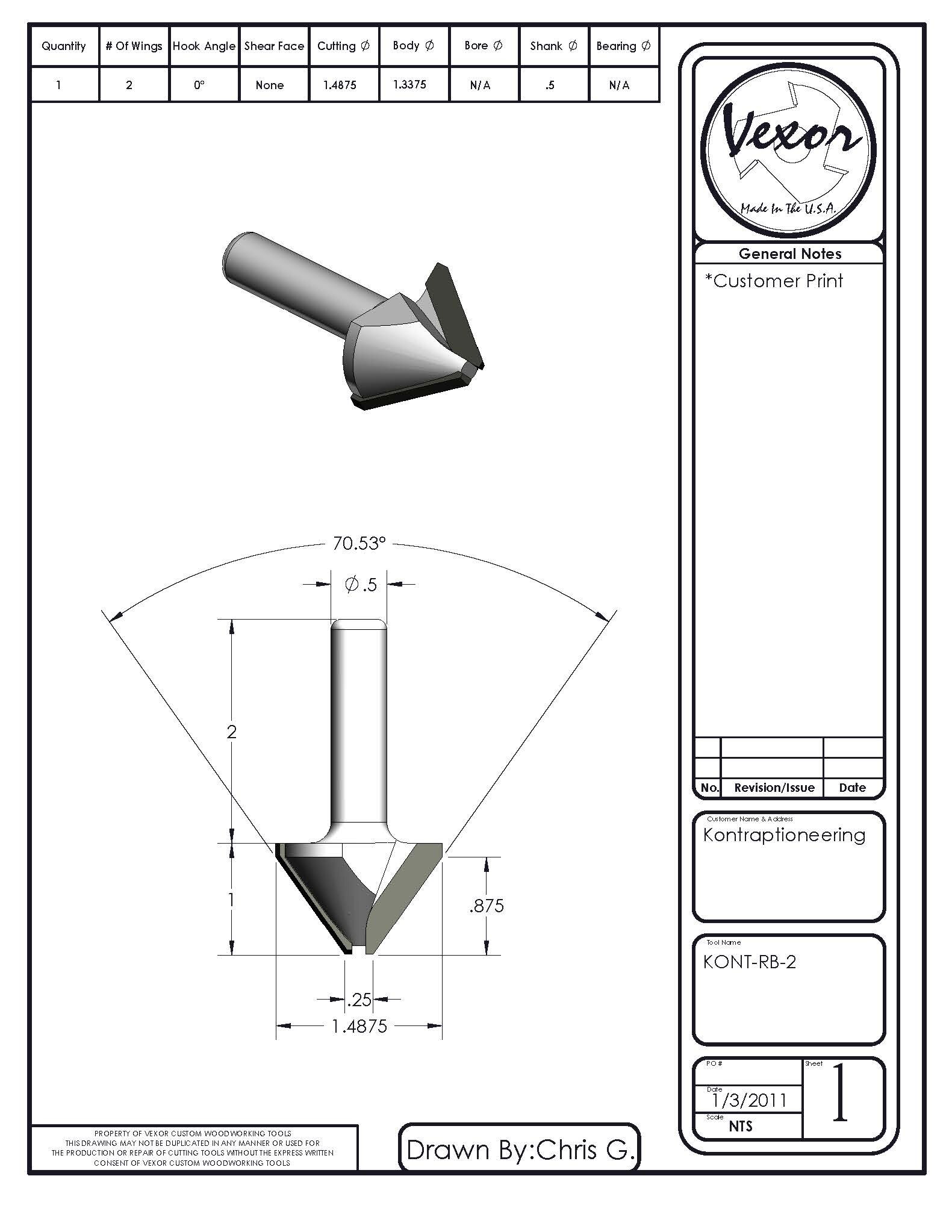
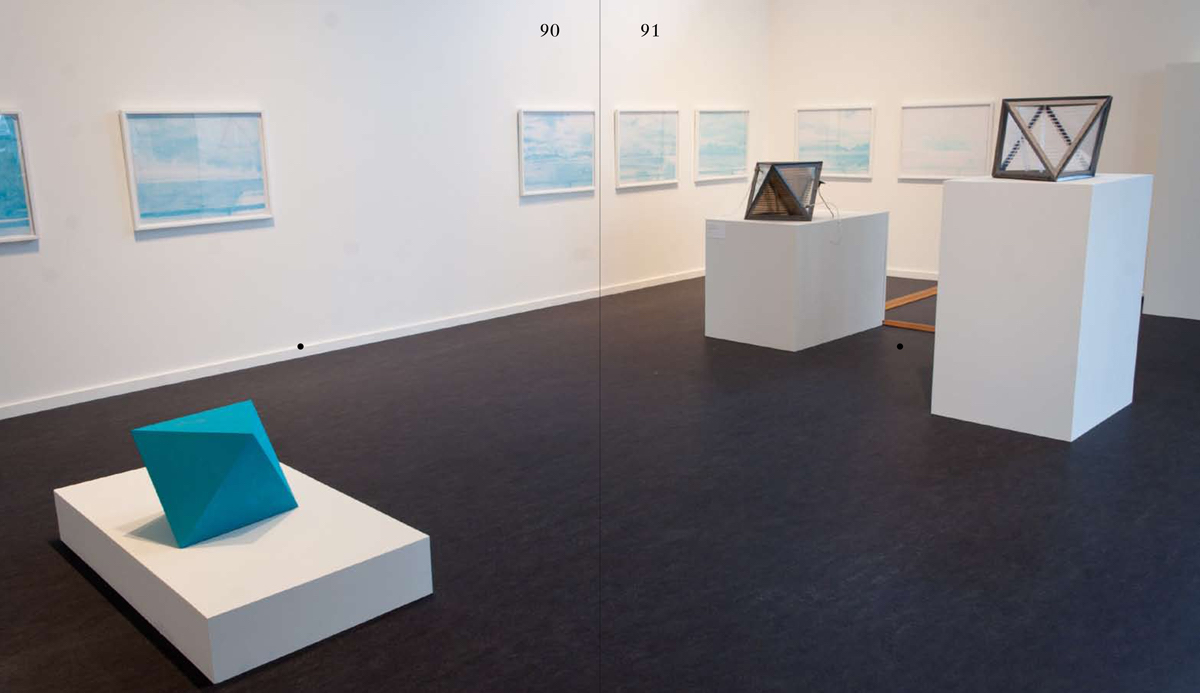

The interior of an octohedron is divided into twenty planes, ergo The Spark Chamber, 2011, steel, lexan (photo: Mike Wilkes)

The Spark Chamber, 2011, steel, lexan, indium tin oxide, argon and cosmic rays (photo: Mike Wilkes)
A detector sculpture, made in collaboration with Justin Albert and the Department of Physics and Astronomy, to observe cosmic rays as a spark. The team of people involved in this project include Triumf engineer Paul BIrney and two students at the University of Victoria: Kate Pachl from the department of physics, and Laura Anderson from the department of fine arts. Exhibited in ‘The Cloud Chamber and Related Works” at the Henry Art Gallery in Seattle.

The Spark Chamber, 2011, steel, lexan, indium tin oxide, argon and cosmic rays (photo: Mike Wilkes) essay by Sara Krajweski
The Spark Chamber is a regular octahedron; the Cloud Chamber is a space-filling polyhedron. Here geometry demonstrates various theoretical and physical orderings of space and energy, from perfect Platonic symmetry to mathematical tessellation into multiple dimensions. The truly random nature of the cosmic ray, made visible inside, contrasts spectacu-larly with the rationalized forms of the sculptures.

The Spark Chamber, 2011, steel, lexan, indium tin oxide, argon and cosmic rays (photo: Mike Wilkes), book design: Jayme Yen

PAGES FROM MARKS AND ANGLES, 2011, PUBLICATION STUDIOS PORTLAND
photo: Mike Wilkes, book design: Jayme Yen

Twenty planes for The Spark Chamber, 2011, #2 in a set of working drawings developed with Laura Anderson

PAGES FROM MARKS AND ANGLES, 2011, PUBLICATION STUDIOS PORTLAND
photo: Mike Wilkes, book design: Jayme Yen

profile of the router bit we had made to cut a dihedral angle for the octahedron, with assistance from Andy Baker, Kontraptioneering NYC

PAGES FROM MARKS AND ANGLES, 2011, PUBLICATION STUDIOS PORTLAND
photo: Mike Wilkes, book design: Jayme Yen